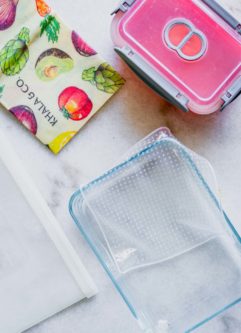4 Eco-Friendly Alternatives to Plastic Ziplock Bags
Want sustainable alternatives to plastic Ziplock bags? We’re sharing why plastic bags are not an eco-friendly choice, as well as four reusable alternatives for sustainable food storage.
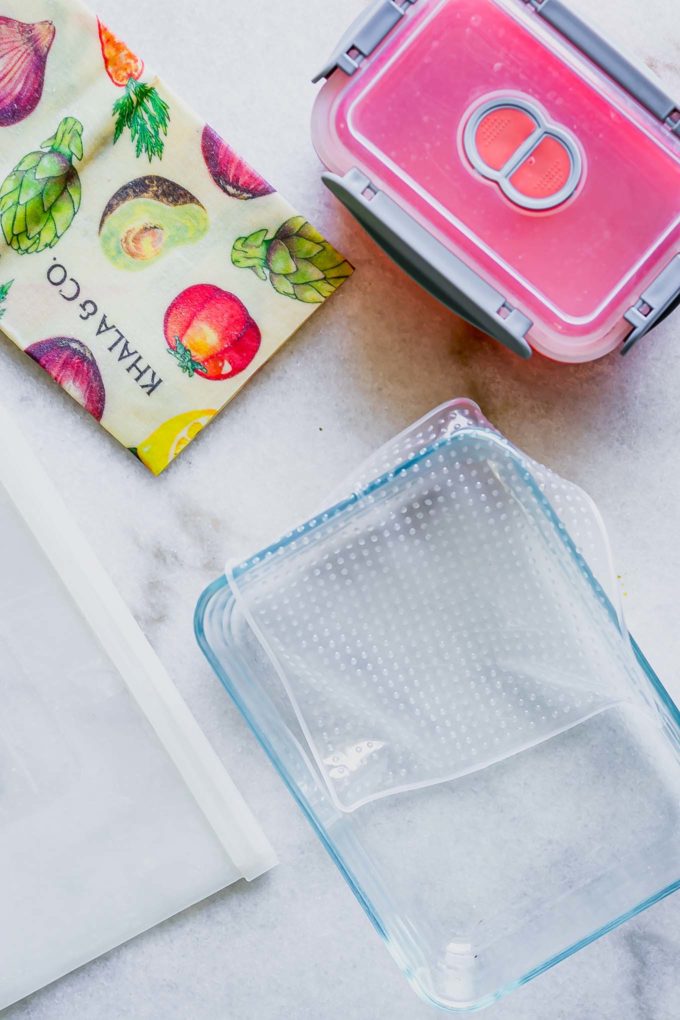
Want to Save This Recipe?
Enter your email & I’ll send it to your inbox. Plus, get new plant-based recipes in your inbox!
By submitting this form, you consent to receive emails from Fork in the Road.
Plastic food storage bags are a convenience that many of us have come to rely on to store food, but the flimsy plastic these bags are made of is not environmentally friendly. In fact, even plastic bags that claim to be recyclable are often not accepted at recycling centers and can take hundreds of years to decompose.
However, never fear! There are alternatives available to reduce your reliance on plastic and be more eco-friendly, including glass storage containers, silicone bags, beeswax wrap, and plant-based compostable food wraps.
Ready to learn why plastic bags are a sustainable choice and our recommended alternatives? Let’s do it!
👉 FYI: This article may include affiliate links, which means we may earn a small commission if you purchase a product we suggest (at no extra cost to you). We never suggest a products we don’t believe in.
👉 Why plastic Ziplock bags are not sustainable
When most people think of plastic bags, the first thing that comes to mind is the ubiquitous Ziploc bag.
While plastic food storage bags have changed the game when it comes to storing food safely, they typically have single uses and then are thrown out for the next clean bag. Not only is this not economically a good choice (because you’re always forced to buy more), this is also very wasteful and has a negative effect on the environment.
These plastic bags are often labeled as recyclable when in fact, they are not accepted by most recycling programs because the equipment at these facilities is not equipped to automatically sort these plastic films and bags, which means they are sent to the landfill where they take hundreds of years to decompose.
The plastic that these bags are made of is not biodegradable and often ends up as microplastics in our oceans. These tiny plastic particles can be ingested by marine life and even make their way up the food chain, posing a threat to human health.
This can be avoided to some extent by turning them into places that specifically recycle plastic bags that would otherwise be disposed of or disrupt other recycling.
Additionally, you may choose to reuse Ziploc bags, which can be done through thoroughly handwashing and drying. Yet, they are not particularly designed with reuse in mind, and are this not the best option if you want a reusable food container or cover.
A better alternative, and one less time-consuming, is to simply try plastic bag alternatives. Here are our top recommendations.
1️⃣ Glass storage containers
If you are looking for a plastic-free and eco-friendly option for food storage, glass containers are a great choice. Glass is non-toxic, unlike plastic which can release harmful chemicals when heated, and does not leach chemicals into your food.
However, glass containers can be bulky and may not have the versatility of plastic bags. Yet, in the long term, glass storage containers are more likely to last you a longer time than a plastic bag (a good reason to take care of them!).
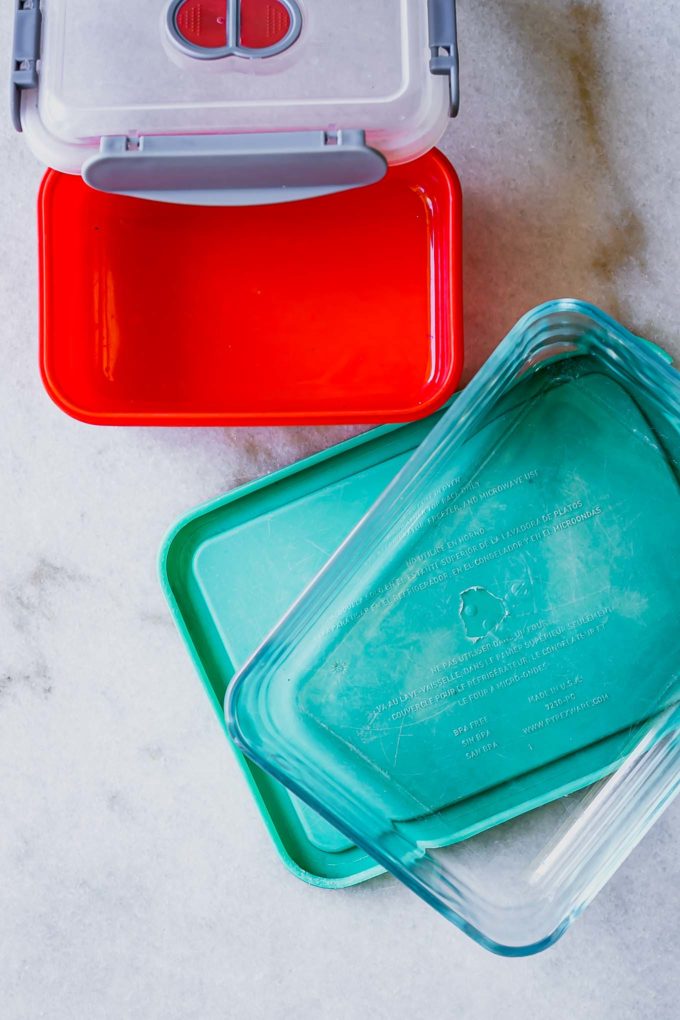
2️⃣ Silicone storage bags
If the convenience of plastic bags is that important, however, silicone bags are one of your better options – but not the best choice. Silicone bags are made using silica, which comes from sand, and the manufacture of these bags does not involve mining for crude oil, unlike the manufacture of plastic. Additionally, these bags are more durable than plastic bags, meaning that they will last longer and be able to deal with more intense use.
While silicone is not biodegradable, it is still recyclable, though much like Ziploc bags, it is not as simple as putting them in the recycle bin. Yet, if the bag winds up in the ocean, it does not break down into microplastics, and as a result, proves less harmful to the environment.
Still, not all silicone bags are created equally, so make sure you do your research on which ones are the best.
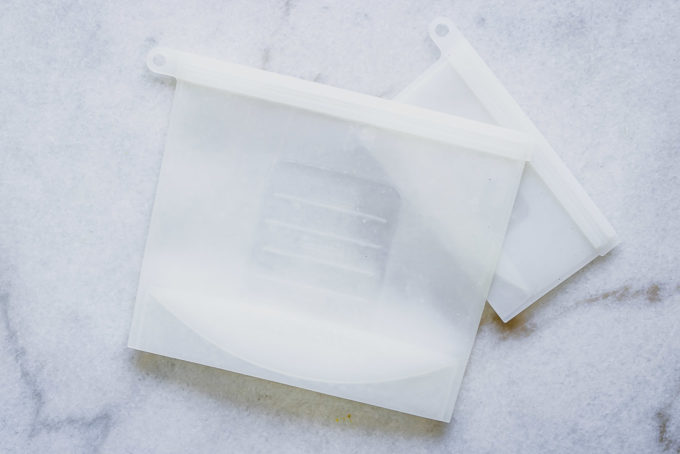
3️⃣ Beeswax food wraps
Beeswax food wraps are a plastic-free and environmentally friendly alternative to plastic food storage bags. These wraps are made of beeswax, cotton, and tree resin, and can be reused up to one year.
However, beeswax wraps are not without some drawbacks. They should not be microwaved or put in the dishwasher, which means keeping them clean is a challenge. However, they can be hand-washed with cold water and mild soap and dried to use again.
Also, because beeswax is made from the honeycomb of a bee hive, these wraps cannot be considered vegan. The wax is melted, poured into a mold, and then cooled to create the wrap.
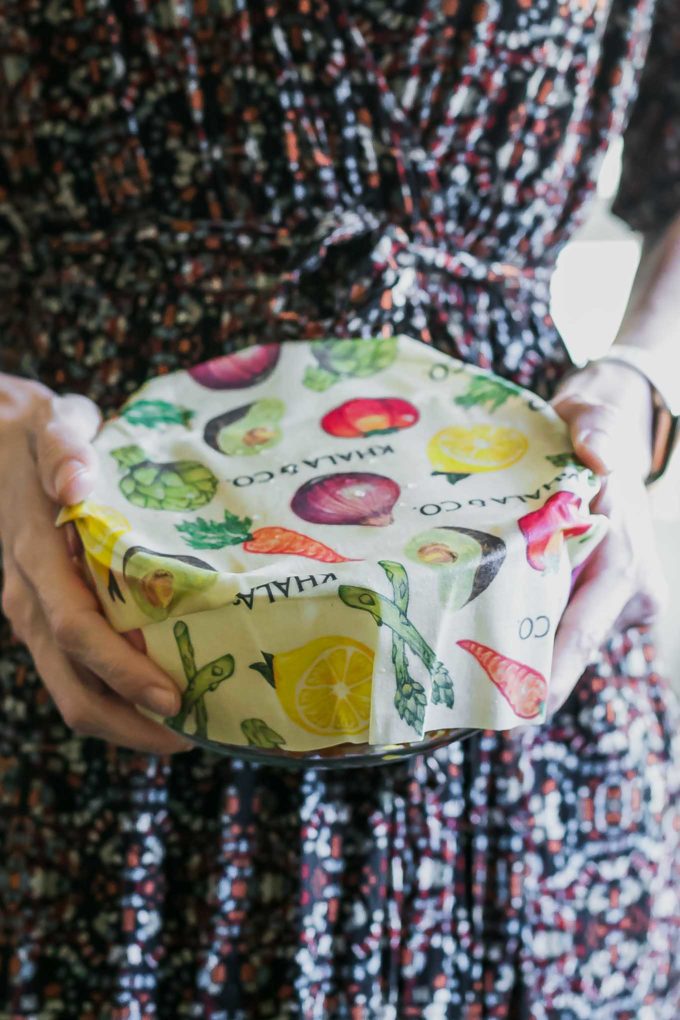
4️⃣ Plant-based compostable food wraps
If you are looking for a vegan-friendly plastic alternative, plant-based food wraps are a good option. Made of plant waxes, oils, and resins, these wraps are designed and maintained in much the same way as beeswax food wraps, but without using animal products.
What’s more, plant-based wraps are biodegradable and compostable. This means that if they end up in the landfill, they will break down and not release harmful toxins into the environment.
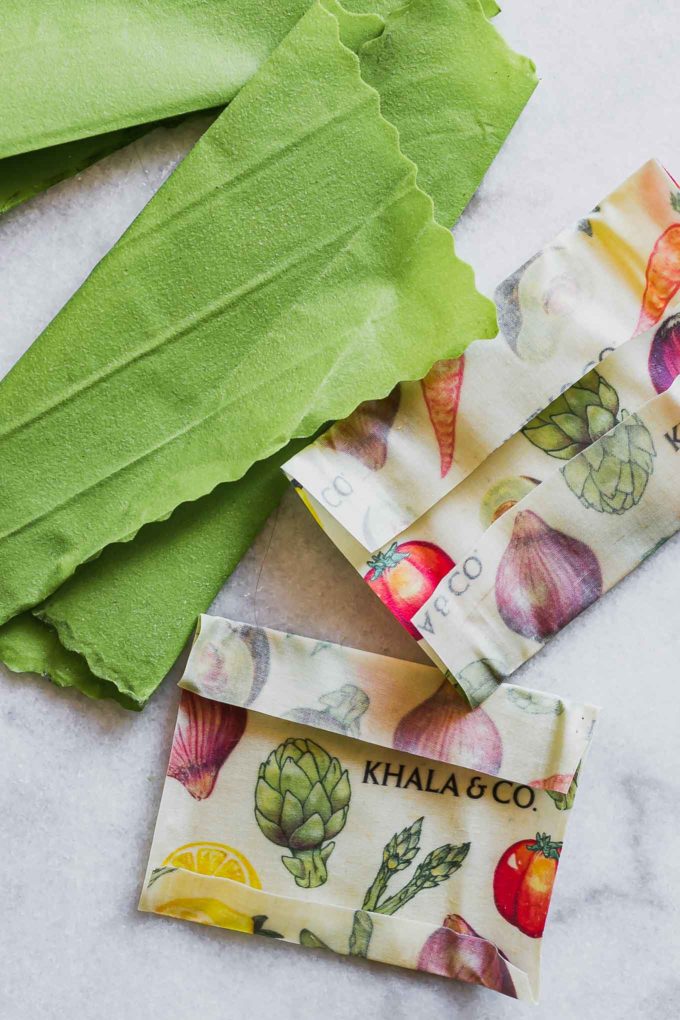
♻️ More eco-friendly food storage tips
Want more tips on storing food sustainably? We’ve got you covered:

